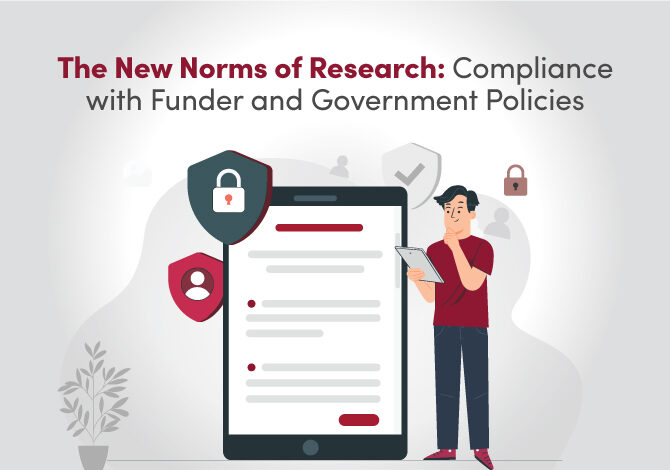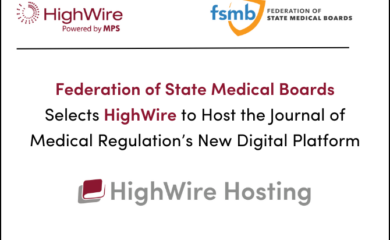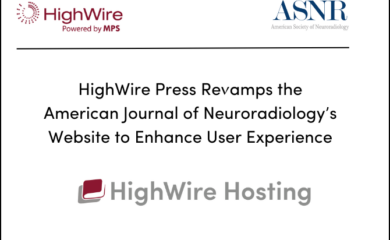In a landscape continually reshaped by evolving policies and mandates, understanding the intricacies of research funding, open access, and compliance becomes crucial for researchers, publishers, and academic institutions alike. This blog is based on HighWire Press’s Best Practices webinar, Complying with Funder and Government Mandates.
It was a discussion among industry leaders Shauna Sadler from ORCID, Sharon Jackson and John McCrow from Jisc on the current state and future directions of research funding, highlighting the critical role of government and private foundations in shaping the trajectory of scholarly work. With a focus on the strings attached to research funding – from data deposit requirements to open access mandates – the webinar offered a comprehensive overview of the challenges and opportunities in the academic research landscape.
New Disclosure Requirements
The Evolving Landscape of Research Transparency
The academic world is increasingly recognizing the importance of transparency in research funding. This shift is driven by a need to maintain integrity and avoid conflicts of interest. As Shauna Sadler emphasized, the introduction of new disclosure requirements is a significant step towards ensuring this transparency.
Agencies Spearheading the Change
U.S. federal agencies like the NIH, NSF, DOE and DOD are at the forefront of this initiative. Each agency has set specific mandates and guidelines for researchers, focusing on the clear disclosure of funding sources and potential conflicts of interest. This move is crucial in maintaining the credibility of research findings.
Impact on Researchers
The new disclosure requirements affect both intramural and extramural researchers. Intramural researchers, being directly affiliated with the funding agencies, and extramural researchers, who receive grants or funding from these agencies, must comply with these guidelines. This compliance is essential for maintaining the integrity of their research.
Implementation Timeline
The implementation of these new disclosure requirements is being rolled out in phases. Agencies are providing clear timelines and instructions for compliance, and it’s imperative for researchers to stay updated with these changes to ensure adherence.
Peer Review Recognition and ORCID
ORCID Services
ORCID provides essential services to the research community, including:
- ORCID ID: A free, unique, persistent 16-digit identifier that distinguishes researchers throughout their careers.
- ORCID Record: A digital CV or profile capturing research-related information.
- APIs: These facilitate data transfer between an ORCID CV and the internal systems of research organizations.
ORCID’s Integral Role in Research
- ORCID addresses key challenges in the research community:
- Name Ambiguity: It resolves issues of researchers having the same or similar names.
- Data Control and Visibility: Researchers control the visibility of their data in their ORCID CVs.
- Global Uptake: ORCID IDs have seen significant adoption globally, particularly in the U.S., Brazil, China, Great Britain, India, Spain, and Germany.
Integration with Research Ecosystem
ORCID’s integration with major systems in the research ecosystem is a testament to its utility. This integration facilitates efficient tracking of grants and publications, which is crucial for maintaining research integrity.
Addressing Research Security Concerns
In light of concerns about foreign interference in research, ORCID’s role becomes even more critical. The U.S. National Security Presidential Memorandum NSPM 33, endorsed by both the Trump and Biden administrations, emphasizes the use of Digital Persistent Identifiers (DPIs) like ORCID to safeguard research. Shauna’s discussion on this topic sheds light on the importance of ORCID in maintaining research security and integrity.
Collaboration with OA Switchboard
The collaboration between OA Switchboard and ORCID, as highlighted by Shauna, is a significant development. It enables smart matching in OA Switchboard, leveraging authoritative employment data from ORCID profiles. This initiative aids in streamlining workflows in the open access research cycle and publication journey, marking a significant step forward in research management.
UKRI’s Open Access Policy
John McCrow, the Licensing Manager at Jisc, delivered an insightful presentation on the UK Research and Innovation (UKRI)’s new open access policy. This policy represents a significant shift in the UK’s approach to research publication, aiming to make peer-reviewed research and review articles funded by UKRI or its councils openly accessible.
The Dual Routes to Open Access
McCrow outlined two primary routes for achieving open access under the UKRI policy:
Route 1: Immediate Open Access Publishing
This route involves publishing the final version of the research record open access immediately, without any embargo, and under a CC BY license.
Route 2: Self-Archiving
Authors can self-archive their work, either the accepted manuscript or the version of record, in an institutional or subject-based repository. This also requires immediate availability without embargo and a CC BY license.
Transition Period and Support
Recognizing the challenges of transitioning to this new policy, UKRI has provided open access block grants available until the end of 2024. This period is seen as a crucial phase for institutions and publishers to adapt to the new requirements.
Jisc’s Role in Facilitating Compliance
Jisc plays a pivotal role in this transition. As one of the world’s largest library consortia, Jisc negotiates licenses for content and software to support UK education and research institutions. In 2021, Jisc’s negotiations in open access renewals saved the sector £8 million.
Strategies for Compliance and Publisher Engagement
McCrow highlighted Jisc’s efforts in negotiating open access agreements with publishers of all sizes. The goal is to provide frictionless routes to open access for UKRI-funded researchers and to develop tools for authors and research organizations to navigate these changes. This includes automated reporting and improved workflows.
Impact and Progress
The reinforcement of open access has led to significant progress. Data from ESAC (the Transformative Agreement Registry) shows that 77% of UK research is now open access, a substantial increase from previous figures.
Diverse Compliance Models
Jisc’s approach includes various models to meet the policy requirements:
- Read and Publish Agreements: These agreements convert subscription payments into funds for open access publishing, allowing authors to publish open access without additional charges.
- Green Open Access Route: This model permits compliant green open access as part of the offering to institutions.
- Subscribe to Open: This model converts paywalled journals to open access using subscription revenues from previous years.
- Community-Based Models: Examples include the Open Library of Humanities and the Diamond Open Access Community Framework.
Consultative Support and Sustainability
Jisc works consultatively with publishers to help them comply with the policy, considering the unique publishing portfolios of each publisher. The aim is to find sustainable pathways that meet the needs of publishers while ensuring policy compliance.
Closing Thoughts
The move towards open access and the implementation of stringent funder and government mandates represent a fundamental shift in how research is conducted, shared, and funded. For researchers, publishers, and academic institutions, staying informed and adaptable is essential. Understanding and adhering to these new mandates is not just about compliance; it’s about contributing to a research ecosystem that values transparency and integrity. As we navigate these changes, collaboration and proactive engagement with new policies and tools, like ORCID and OA Switchboard, will be key to success.



